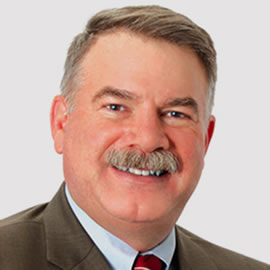‘You never know what people are going through, because each person you meet has a story to tell. So instead of being judgmental, just listen well.’ — Charmaine J. Forde
I received a call today from my middle daughter, Hannah, who was in a bit of a panic. She is a second-grade teacher in the Baltimore County Public School System. While waiting for a stoplight on her way to work, a homeless (presumably) man threw a metal pipe at my daughter’s BMW rental car, denting the new car’s side door. This action was done with force and purpose.
I would ask the reader to pause and think about the judgments formed in your mind regarding the incident I just described, then I will outline my immediate reactions:
- Are you injured (thankfully, the answer was no)?
- He must have been irritated by the “rich” white girl in the BMW.
- He lashed out with the nonlethal force to express anger at the inequity of his situation and the privilege of my daughter.
What evidence or basis do I have for these thoughts? None whatsoever. On the surface, it was a senseless act of vandalism perpetrated upon my daughter who happened to be stopped at that particular intersection for a traffic light. My initial thoughts only express my own biases as I try to make sense of this seemingly nonsensical and random act. I even dared to develop these conclusions based on a two-minute phone conversation with my daughter regarding the incident. I had no direct interaction with these events. Yet, I effortlessly drew the listed conclusions knowing nothing about the individual I was judging. It was a bit unsettling how effortless these judgments were for me.
Although I have no way to be certain, I imagine that the individual who perpetrated this violent act was making judgments concerning my daughter. Hannah is a second-grade schoolteacher. A laudable profession to be sure, but not one that is chosen to achieve a fat bank account. She was in a loaner car since her 2014 Toyota Prius had recently been totaled in an accident (she was not injured but is having some rather painful luck of late). The Prius that was wrecked was my old car. Hannah does come from some privilege in that we as a family have means. Still, a career in the Army is another profession not necessarily designed to make you rich. The BMW rental was available after the accident through insurance, not a choice. Interestingly, Hannah had expressed her discomfort in driving the vehicle the day before, since it was not within her means to own a BMW.
I could not help but wonder if the man who lashed out at the girl in the BMW would have made that snap decision if the few facts in the previous paragraph were known to him. I also wonder if my flash judgments of this individual, spurred over concerns for my daughter, might have been vastly different if I knew this man’s story. Maybe he just really dislikes BMWs, for example.
I feel the pace of change and stress in our lives has increased dramatically during the past two years of the COVID-19 pandemic. I sense this stress in the aggressiveness of drivers in my commute to work, the irritation in the grocery line or the seeming lack of basic good manners in routine interactions. I also feel increased apprehension in my patients when I work clinically, preparing them for surgery. Trust in the medical profession generally seems in short supply.
One of the most important lessons I have learned in my 30-plus years of clinical practice is the importance of listening to patients and understanding their stories and life situations. I find the greater the quality of my interaction listening to my patients, the easier my interventions with them become. As Hippocrates reminded us 2,500 years ago, “It is more important to know what sort of person has a disease than to know what sort of disease a person has.”
So, as we move into the holiday season and a new year, I feel reflecting on the importance of listening and understanding people is a virtuous act we all should aspire more to do. If we work toward more understanding concerning the life circumstances of people generally or patients specifically, the need for and dangers of snap judgments will relax. Hopefully, the general stress level around us will reduce.
The incident with my daughter was stressful and anger-provoking, to say the least. The reality of the situation is that my daughter was shaken but unharmed. She is not responsible financially for the damage to the car. She will end her day comfortable, fed, sheltered and loved. I am not sure the same can be said for the man in the street who lashed out. I feel a little more time spent understanding those with whom we interact and far less judging would be beneficial for all. As healthcare providers, we should strive to be kind and always understanding in our interactions with others to set an appropriate example. An effort in this direction by all readers of this column would be an excellent gift to our society this holiday season.


